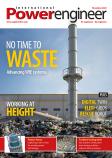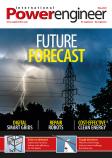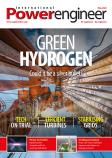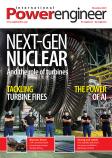Kalpesh Shah details the importance of specifying a demineralised water system that can meet industry standards
One of the most important factors in ensuring the reliability and longevity of power generating assets, such as the boiler and the steam turbine, is a dependable source of high quality purified water. Scaling and corrosion caused by the presence of water impurities can have a significant impact on the efficiency and performance of the system. Likewise, effective heat transference within the boiler is key to maximising the energy from the heat source. Finally, contamination or corrosion of the turbine blades can disrupt their operation and, ultimately, shorten their lifespan.
At the moment, the industry is also facing pressure to reduce water usage. Fresh, potable water is gradually becoming a limited resource and as such, the cost is increasing. Mains supply water contains levels of minerals and impurities that are far greater than the boiler or turbine manufacturers’ recommended standards. Selecting the correct high performance water treatment solution can help meet the challenge of complying with even the most stringent manufacturers’ requirements whilst balancing efficient use of mains water. A highly effective option is a combination of reverse osmosis (RO) and continuous electrodeionisation (CEDI) technologies.
RO systems use a semi-permeable membrane to separate up to 99% of the dissolved solids and particles from a water supply. The feed water enters the membrane under pressure and the water molecules pass through, while the contaminants are captured and discharged to drain. However, the effectiveness of the particular RO system will vary so it is important to look carefully at the performance of the chosen option.
Following the RO stage, CEDI can be used to polish the water to a high level of purity. The high-efficiency demineralisation process uses electricity and ion exchange membranes to separate dissolved impurities (ions) from water. The benefit of continuous electrodeionisation is that the electric current constantly regenerates the resin beds, meaning a simpler operation and no downtime. Furthermore, when compared to technologies such as ion exchange (IX), CEDI has a smaller footprint, lower operating cost and is far safer as it does not require the use of hazardous chemicals.
The combination of these technologies allows a very high level of water quality to be continuously and reliably achieved. For example, the Terion demineralised water solution can achieve conductivity levels of less than 0.08µS/cm, chloride, sodium and sulphate levels of less than 3 parts per billion (ppb), silica of less than 5ppb and total organic carbon (TOC) of 200ppb.
Meeting Current And Future Needs
However, when choosing a water treatment solution, it is important to ensure that it can meet the current and future water volume requirements reliably and efficiently. There are a range of models available to suit all power generation facilities.
In addition, practical considerations such as energy usage, operating costs and plant footprint must also be factored in when specifying a solution. Systems that feature high efficiency pumps and motors used in the treatment process can help to keep energy costs down. It is also worth looking for systems that combine the RO and CEDI technologies into a single unit. This will not only reduce the overall footprint of the system, saving valuable space, but will also minimise installation and commissioning time.
Remote Monitoring
Furthermore, investing in systems with remote monitoring capabilities is recommended. This can help operators to easily check and track the quality of the water being produced through real time data, with automated alerts and notifications to highlight any deviations. In the event of an issue, this type of monitoring means engineers can remotely access and view the operational data, maintenance schedules and performance. Also, monitoring systems that allow an element of optimisation can help improve the efficiency of the water treatment system and reduce costs further. The Terion solution integrates seamlessly with Veolia Water Technologies’ Hubgrade package of digital services, which uses a secure, cloud-based platform to deliver real-time monitoring and optimisation.
Finally, it is important to look at the level of engineering and technical support that is offered by the system supplier. Leading manufacturers will provide help and guidance at each step of the process from initial specification through to ongoing system support and maintenance.
The quality of the water used for power generation applications is one of the most important factors in ensuring system longevity and reliability. Choosing a water treatment solution that can provide a dependable, cost-effective supply of high-quality water will help to reduce costs, minimise disruptions and maintain the operational life of power generation assets.
Kalpesh Shah is with Veolia Water Technologies UK

















